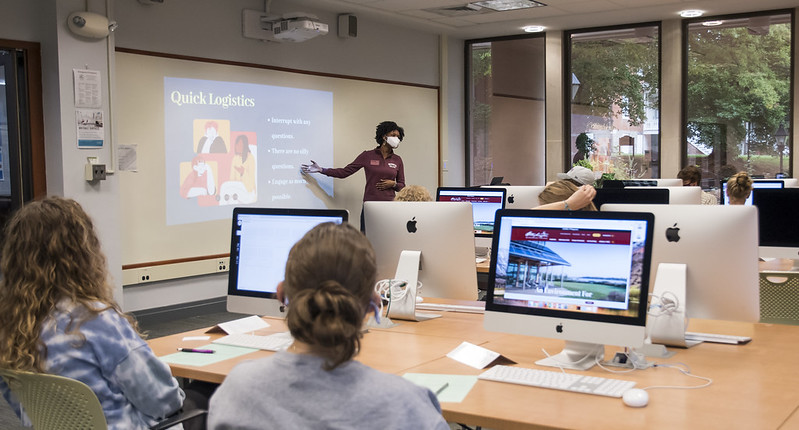Washington College Approves Transfer-Friendly Pathway for Community College Students
Students completing two kinds of associate degrees at Maryland community colleges will soon have a smoother pathway to finishing a four-year degree at Washington College.

Washington College faculty approved changes to the transfer credit policies in January, creating a pathway for Maryland community college students to more easily transfer to Washington to complete a bachelor's degree. Students earning either an associate in arts or an associate in science degree at an in-state community college will have all of their credits transfer in a process known as direct transfer, also called block transfer at some schools. Application and acceptance to Washington is still required, but admitted students with either of the relevant associate's degrees will enter as juniors directly into their major.
“This will make it easier for students from Maryland community colleges to complete their four-year degree at Washington College,” Interim Provost and Dean Michael Harvey said.
Under the current process, which will continue for out-of-state community college transfers, students' transcripts are evaluated on a course-by-course basis to identify which credits will satisfy Washington College requirements. The new block transfer system means faculty have evaluated Maryland community college curriculums as a whole and determined their requirements for an associate degree can be understood to complete all Washington College general education requirements, with the exception of the foreign language requirement, which will be evaluated separately.
“This is a national issue. Small liberal arts institutions have a lot of specifications about what the general education requirements have to be that you don't see at a public school” like community colleges, said Johnnie Johnson, vice president for enrollment management. Block transfer “makes the process simpler for the student, gives them full credit for the courses they have completed and lets them know they can earn their Washington degree after two more years. ”
Assistant Dean for Transfer Pathways Jennifer Benson, who is also an associate professor of philosophy, said that allowing transfer students to arrive at Washington as juniors will have important benefits for them beyond keeping them on track to graduate in four years and easing the transfer process itself. Like all juniors, these students are entering a period of their college career when internships will become vital, and having the ability to start at Washington with their general requirements satisfied will allow them to engage in deeper conversations with advisors to identify opportunities in their chosen fields, whether internships or additional coursework relevant to their goals, even minors or second majors.
“It is going to change the process in important ways. We won't be having conversations about what credits a student doesn't have. Instead, we can talk about what is interesting and how do we pull together their remaining credits in an area of interest to them,” Benson said. “This is one part of an answer to what is a very big question...how do we think about doing the right thing for our transfer students—smoothing out the path in to their major—so they can complete with efficiency and have rewarding, enriching experiences?”
By simplifying transfers and ensuring students don't have to repeat general education requirements, the new block transfer process should make Washington College more attractive to these students. It makes the College a more viable option for students looking to complete a bachelor's degree after their associate. Johnson said many of those students currently end up at public universities like the University of Maryland that may not have as many or as specific general education requirements.
But just like students who start at Washington College, transfer students might have many reasons that a large institution is not a good fit. All of the advantages of a small liberal arts institution can appeal just as strongly to transfer students: greater opportunities to participate in campus life and athletics, easier access to resources like the Center for Career Development, personal relationships with faculty who help students achieve their goals during and after college, and the many high-impact opportunities during their time at Washington, such as study abroad, internships, and research opportunities.
“Being a small college, we know the students. We really can cater to those individual needs,” Johnson said. “This makes Washington College an attractive option for students from our community college partners. It says to those students, ‘We want you to be a part of our community.'”